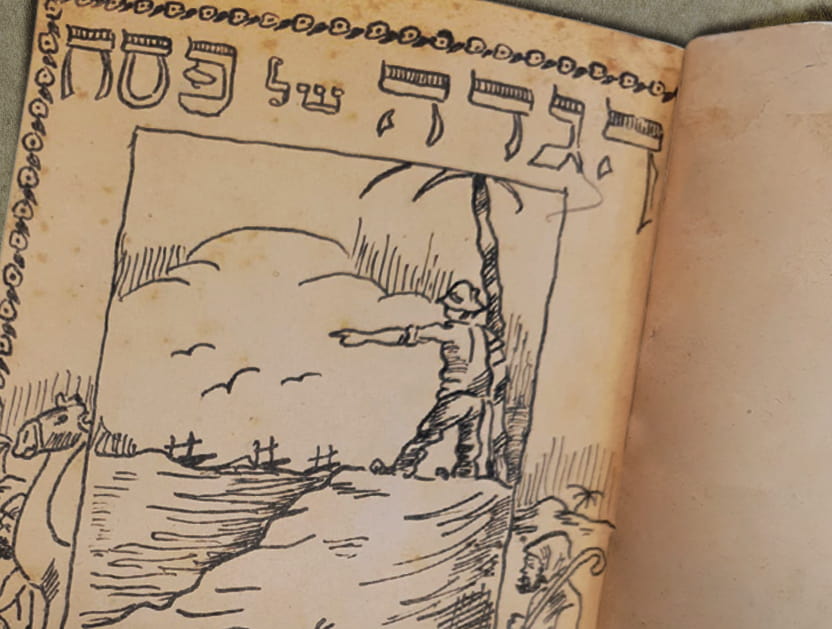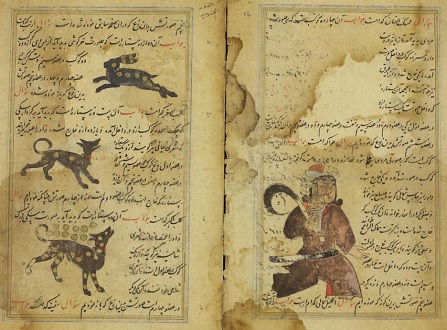פטר אלטנברג נולד בשם ריצ'רד אנגלנדר בווינה 1859 כבן להורים יהודים ממעמד הביניים, אך מאוחר יותר התנצר. הוא מעולם לא הצליח לסיים אוניברסיטה למרות שהחל בלימודי משפטים, אחר כך רפואה, אחר כך הכשרה כמוכר ספרים ואז שוב לימודי משפטים. הוא גם מעולם לא החזיק בעבודה קבועה ולבסוף אובחן כלא כשיר לעבודה רגילה בגלל מערכת עצבים רגישה מדי. בשנות ה-80 הוא עבר מבית משפחתו והחל לנהל חיים בוהמיינים, לבלות את היום בבתי קפה, ללוות כסף ולישון במקומות שונים. את רוב כתיבתו עשה בבתי קפה, בסגנון אימפרסיוניסטי. בשנת 1896 פרסם אלטנברג את ספרו הראשון שהיה מורכב מקטעים קצרים על חיי היומיום של אנשים ממעמדות חברתיים שונים. ספרו התקבל בברכה ועזר לו לבסס מוניטין של סופר משמעותי. עשרה ספרים נוספים הלכו בעקבותיו במהלך חייו. הוא נפטר בגיל 59 בווינה ב-1919.
Peter Altenberg Collection
להגדלת הטקסט להקטנת הטקסט
| כותר |
Peter Altenberg Collection. |
|---|---|
| כותרים נוספים |
כותרת בעברית: אוסף פטר אלטנברג. |
| הערת ציטוט |
ARC. Ms. Var. 304, Peter Altenberg Collection, Archives Department, National Library of Israel, Jerusalem |
| מתוך |
Peter Altenberg Collection |
| סימול קודם |
Ms. Var. 304Ms. Var. 366 |
| רמת התיאור |
Fonds Record |
| תקציר ביוגרפי |
Peter Altenberg was born on March 9, 1859 in Vienna as Richard Engländer, the son of a Jewish merchant. He chose his pseudnym Peter Altenberg from a meeting with a 13 year old girl in Altenberg on the Danube, whose nickname by her brothers had been "Peter". He began studying law at the university of Vienna, then switched to medicine, then abandonded the idea and moved to Stuttgart to begin training as a book dealer. This he abandoned again, and returned to Vienna to continue with law studies and to abandon those as well. In 1895 he published his first literary work with the help of Karl Kraus. In 1900 he officially left the Jewish community, became unaffiliated with any religion, and finally, after 10 years, was baptised as Catholic with Adolf Loos as his godfather. He left his family home and led a Bohemian life writing in coffeeshops and sleeping in various places. He became a well know figure in Vienna and was the center of many (urban) legends. He never held a permanent job, and was diagnosed as having an overly sensitive nervous system that prevented him from holding a regular job. Despite his literary success he was dependent on donations arranged by his friends, among them Karl Kraus and Adolf Loos. He was an extravagant unconventional dresser, wearing sandals on bare feet. He had a large collection of postcards and developed his own health theories. He spent his last six years of life living in a hotel room, interspersed with time in instutions to treat alcoholism and depressions. He died in on January 8, 1919 in Vienna. His work mainly consists of short prose that can be considered prose poetry, sketching short glimpses of daily life, encounters and overheard conversations, as he saw them in the coffeehouse scene. |
| היסטורית בעלים |
The materials were permanently deposited in the National Library in 1957. |
| הערת שפה |
The materials are in German. |
| קרדיטים |
Peter Altenberg Collection, The National Library Israel. Digitization and cataloguing of this fonds was funded by Deutsche Forschungsgemeinschaft (DFG / German Research Foundation) under Germany's Excellence Strategy - EXC 2176 'Understanding Written Artefacts: Material, Interaction and Transmission in Manuscript Cultures', project no. 390893796. The research is conducted within the scope of the Centre for the Study of Manuscript Cultures (CSMC) at Universität Hamburg. |
| מספר מערכת |
990026261320205171 |
| קישורים |
תמונת ארכיון |
בכל שימוש יש לציין את מקור הפריט בנוסח הבא:
Peter Altenberg Collection, The National Library Israel. Digitization and cataloguing of this fonds was funded by Deutsche Forschungsgemeinschaft (DFG / German Research Foundation) under Germany's Excellence Strategy - EXC 2176 'Understanding Written Artefacts: Material, Interaction and Transmission in Manuscript Cultures', project no. 390893796. The research is conducted within the scope of the Centre for the Study of Manuscript Cultures (CSMC) at Universität Hamburg.
תנאי השימוש:
לכל תיק בארכיון נקבעו תנאי השימוש המתאימים
תנאי השימוש מופיעים בדף התיק הארכיוני באתר הספרייה הלאומית.
למידע נוסף על שירות בירור מצב זכויות היוצרים ותנאי השימוש בפריטים מאוספי הספרייה לחצו כאן.
תצוגת MARC
יודעים עוד על הפריט? זיהיתם טעות?

 כניסה עם גוגל
כניסה עם גוגל
 כניסה עם פייסבוק
כניסה עם פייסבוק





